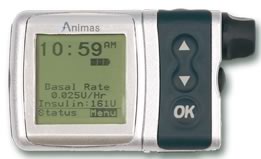Well folks, we finally had that second 504 eligibility meeting-- and I finally have a few moments to tell you about it.
Early Friday morning, Ryan and I take seats around a large circular table in the principal's office at Joseph's school. Our advocate sits across from us.
The principal (she wasn't a part of our first meeting), the school psychologist (L) and the School District's 504 person (SDP) are already seated at the table.
Noticeably absent are the School Nurse (B) and Joseph's teacher (Miss W).
"B will be in shortly-- she has to train someone last minute for a field trip," the principal tells us, "but I'm afraid Miss W can't be here... "
Oh no.
" ... her sister was in a serious car accident last night-- she's at the hospital with her right now."
For a moment, all I can think about is Miss W and her sister.
But then SDP starts talking.
She first explains that Joseph's "learning" (the criteria used in our previous meeting) is not being "substantially limited" by his diabetes, as demonstrated by his excellent grades.
Then she begins walking us through the requirements for protection under Section 504.
At this point, our advocate stops her-- saying that she's confusing 504 with IDEA -- another disability law -- and that learning doesn't have to be affected in order to be covered by 504. But then he also tells her that learning is affected by diabetes.
SDP responds by saying that she is very familiar with Section 504-- that she is the 504 coordinator for the District.
She insists that we need to consider another major life activity besides learning-- and then determine whether or not Joseph's diabetes "substantially limits" his ability to perform that activity.
"Glucose metabolism is the major life function most impacted by diabetes," she tells us.
Immediately, I agree.
"Now, the kinds of things we look at with respect to metabolism," she goes on, "are the number of 911 calls, the number of absences from school due to diabetes and -- now it says here that Joseph sometimes 'acts drunk' when he's low-- the nurse can tell us how often that has happened."
I listen very carefully, and then slide a document to the center of the table.
"I don't think anyone here can argue that Joseph's glucose metabolism isn't substantially limited," I say, pointing to the document, "especially if we look at the numbers. For example, from May 1st through the 29th, Joseph had":
- 123 Glucose tests with a reading of greater than 200 that required treatment with insulin;
- 62 Additional episodes of “mild” hyperglycemia (between 150 and 200) that, depending on how quickly his blood sugar was rising or how long he’d been “high” also required treatment with insulin;
- 24 Episodes of hypoglycemia (less than 70) requiring treatment with glucose and additional carbohydrate;
- 14 Additional episodes of hypoglycemia in which – though blood sugar was in the (low) normal range – Joseph experienced symptoms (due to a rapidly falling blood sugar) and required treatment.
Next, I share a letter from Joseph's endocrinologist-- in which she expresses her "strongest support" of our request for a 504.
In that letter, his endo also writes that even though we are "quite diligent in [our] pursuit of excellent metabolic control for Joseph, the reality of living with Type 1 diabetes in 2007 is that the patient experiences episodes of hypoglycemia and hyperglycemia weekly, often daily."
We discuss the contents of these documents for a while, and even though SDP turns out to be far more reasonable than I'd hoped-- she clearly still believes that Joseph would be fine with just a Health Care Plan.
"I realize that we've had a Health Care Plan in place that, for the most part, has been very effective," I tell her, "but we
have had issues. I've got some examples right here-- in fact, just this week we had an incident. I'll read you a description":
On 6/6/07 at 10:35, Joseph telephoned from the nurse assistant’s office.
He had a low blood sugar of 49.
After instructing Joseph to take four glucose tablets, I asked to speak with the nurse assistant (K). I reviewed my concerns about the fact that Joseph has been having a lot of lows lately– more so on days when he’s had PE. And since Joseph just had a low and would be going into PE, I wanted her to have him check his bg before that class– and if vigorous activity was planned, I wanted Joseph to have extra carbs.
I also wanted the PE teacher to be made aware that Joseph had a low, and that he should watch for those behaviors that might indicate Joseph’s bg was falling.
This is when K told me that the PE teacher has been out– that a substitute is teaching PE. I asked if B (the nurse) had done an in-service with him to bring him up to speed on Joseph’s diabetes-- she said “I don’t think so.”
She then offered to have the substitute call me.
Ten minutes later, the PE substitute phoned me at home. I asked him if he’d received training about my son’s diabetes.
He said “no.”
I asked him if he’d seen the one-page Health Care sheet I’d put together at the beginning of the year for all of Joseph’s specials and substitute teachers (the PE teacher has one of these sheets).
He said “no."
I asked him if he was aware that my son wears an insulin pump.
He said “no.”
I asked him if he was even aware that my son had diabetes.
He said “no.”
"We want to ensure our son's safety at school, and we believe a 504 -- a legally binding document -- will help us do that."
A few moments of calm discussion, and then SDP instructs the school psychologist to change the criteria on the 504 evaluation from "learning" to "glucose metabolism."
Our conversation then turns to those accommodations SDP feels we should add to Joseph's 504 plan for middle school.
And for the first time since this whole process began, I feel like we're all on the same team.
 Because -- despite the fact that we're about to receive our sixth pump in two and a half years -- Joseph is gonna be dang happy about this new silver one.
Because -- despite the fact that we're about to receive our sixth pump in two and a half years -- Joseph is gonna be dang happy about this new silver one.





